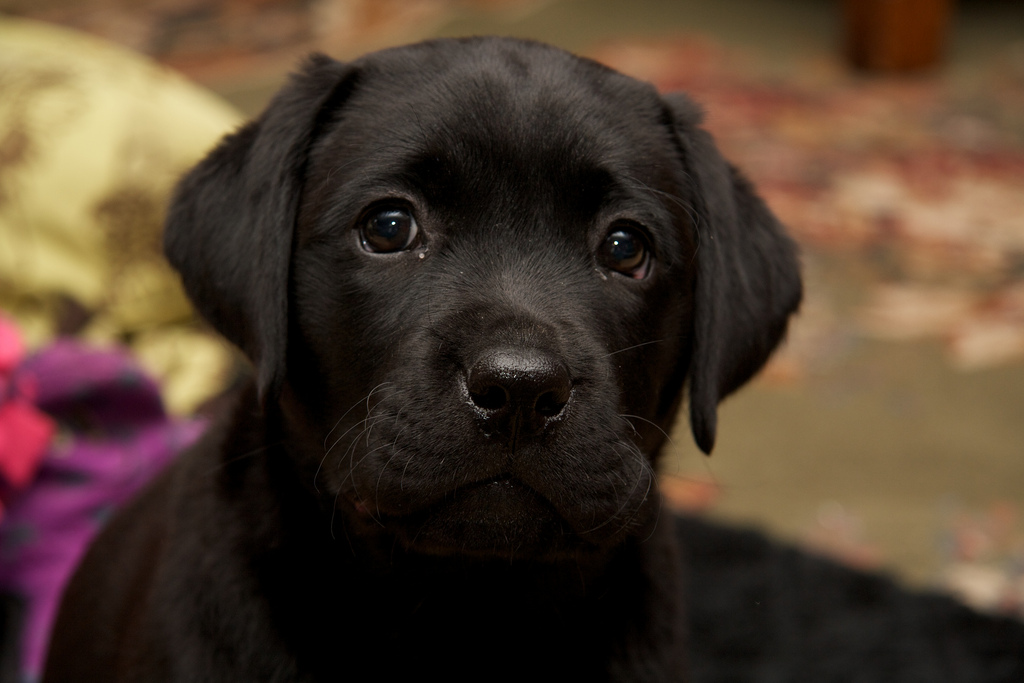Terrible Couple Wastes Money on Cloned Dogs

You may have heard this story on NPR yesterday, talking about dog owners who clone their beloved dogs to keep their memory alive (literally I guess).
The story starts off innocently enough, touching on the science of cloning and the story of the couple (Phillip and Paula Dupont) who paid to have their dog Melvin replicated (into his clones, Ken and Henry).
Ken and Henry are genetically identical, though not exact replicas. They’re clones of the Duponts’ last dog, Melvin — created when scientists injected one of Melvin’s skin cells, which contained all of his DNA, into a donor egg that had been emptied of its original DNA.
Then the story starts to get dark.
Melvin was supposed to be a Catahoula leopard dog, Louisiana’s state dog (sometimes called a Catahoula hound). Turned out, Melvin was a mutt, probably part Catahoula and part Doberman.
“I paid $50 for him,” says Phillip. “But I wasn’t going to return it. I thought for a while I was going to put him to sleep.” Then he changed his mind. “Turned out to be the best dog I ever owned.”
The guy who owned the dog wanted to end the dog’s life for not being the right breed. He even says that returning the dog wasn’t an option. Death was somehow a better choice for this perfectly healthy dog. Good thing he changed his completely rational mind—surprisingly, this mudblood dog turned out to be great!
By the way, this guy is also a veterinarian.
The Duponts have lots of stories about what made Melvin the best dog they ever owned, including the time Melvin found car keys Phillip had lost in the tall grass. The couple trusted the dog so much they let him babysit their grandson in the backyard all by himself.
I wonder how much dogs charge to babysit? Good thing this dog earned his keep though, or else maybe that vet would’ve reconsidered sending him to The Big Sleep.
So a couple of years ago, when Melvin was about 9 and starting to show his age, the Duponts turned to a lab in South Korea. Even though the process would cost them $100,000, the couple decided to do it. They’d already spent that much on a Humvee, Phillip notes. “So, what the heck?”
I can just imagine this conversation of the least fiscally responsible couple ever. “LOL money?? Well we just bought a horrible car, what are some other terrible ways we can get rid of this shit?” Despite the fact that $100k would do wonders to support any animal shelter, getting some cloned dogs is better.
Reading the quote again, I originally thought the couple had bought a Hummer, but now I see they’ve bought a Humvee (apparently you can actually buy a real one). I wonder why exactly they need a military car for driving to their veterinarian clinic? Are we in some kind of post-apocalyptic Stephen King universe or something? Did they consider just using their money to build a swimming-pool-style vault where they could jump into their coins, like Scrooge McDuck?

When pressed about how much the clones are really alike, the Duponts admit there are little differences, much as differences show up among identical twins. The white stripe on Henry’s nose is a lot wider than Ken’s, and Henry weighs a bit less. Ken is more of a loner. But that’s about it for differences, the couple insists.
I’m surprised they didn’t put down the one dog that looks a little different from the original!
As far as whether other dogs suffered in creating theirs — the Duponts dismiss that notion, based on what they saw at the lab when they visited twice to pick up their clones.
“Even though South Koreans eat dogs, they love their pets,” Phillip says. “They’ve got rooms for these dogs to sleep in, with beds. They’ve got technicians who sleep with the dogs. And [the dogs] are all well cared for.”
He says the lab staff told him that after dogs have served as donors or surrogates, “they’re fixed up and go to new homes.” (Sooam Biotech did not confirm or deny that assertion when NPR asked what happens to the dogs the company uses as donors and surrogates).
Nah, dogs who have their eggs harvested and undergo IVF procedures totally aren’t suffering. (Is anyone surprised that they quickly dismissed that idea?)
Listen, if you’re giving a lab $100k to clone a dog, they’re not going to tell you anything bad that is happening. Oh and the part where the dog surrogates are fixed up to head to new homes? That sounds like someone reassuring you that your dog was sent away to a nonspecific farm where they could run and play all day.
The Duponts also say they don’t feel bad about spending so much money to create cloned dogs, when so many other dogs need homes.
There will always be strays on the road and too many dogs at the animal shelter, because irresponsible owners don’t spay or neuter their pets, Paula says. In contrast, she says, families that clone their pets don’t do it “with the idea of producing 10 more. We’re looking at having the one special dog again.”
I don’t think Paula understands the question. Either that or I don’t understand her answer. (Did she study at the Sarah Palin School of Answering Journalists’ Questions?)
Why didn’t they just adopt a dog at a shelter instead? Melvin wasn’t the dog that they thought they were getting, and they almost killed him because he was a mutt, but he ended up being the best dog they ever had—don’t they think that would happen with almost any other dog, or is a nice dog such an anomaly to them?
Furthermore, it doesn’t matter whether or not families that clone their pets want 1 or 100 clones. Presumably, after spending all that money, they would have the money to take care of however many pets they wanted. The issue is, how can you justify spending so much money on one dog when you could help out so many other dogs instead. Especially because cloning is such a new science, we don’t understand the health effects yet (in fact, one of the first puppies the couple cloned died of distemper), and just because your dog is genetically the same doesn’t mean that its personality will be the same (as in this episode of This American Life about a couple who cloned a bull)
Or, in their case, two special dogs again, and maybe one more. The Duponts are already talking about cloning Melvin again — for their grandson.
So, they want to spend $100k more, for another dog. Well, hopefully they’re putting the same amount aside for their grandson’s college education. Hopefully with enough schooling, this poor kid will be able to overcome his own unfortunate genetic heritage.





I could make a joke about someone named Dupont cloning something. (The Duponts had a history of inbreeding in pre-revolutionary France.)
Interesting point about eating dogs. The Lakota care about dogs a lot, and in some celebrations, one way of blessing the ceremony was ???ohãpi (and I know WordPress won’t recognize half that word), or dog soup.
Oh, it recognized the a-tilde. But not the u-tilde.
I adopted a puppy from the local shelter. They told me they thought he was part Fox Terrier and part Collie. At the time I couldn’t tell for sure because he had a kind of generic puppy appearance…
Well, he grew up and he seems to be mostly Whippet. Super fast dog. When we play fetch he out-runs the ball!
Part of the point of getting a dog is that dogs come with surprises. Hopefully they are mostly hilarious, adorable surprises. Plus, the human-dog relationship is more than just a one-way street. I’m sure the dog had no idea what it was getting itself into, either.